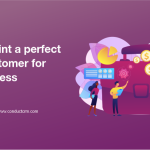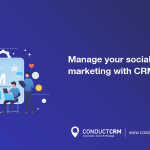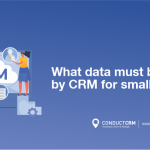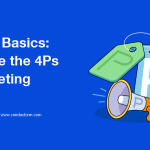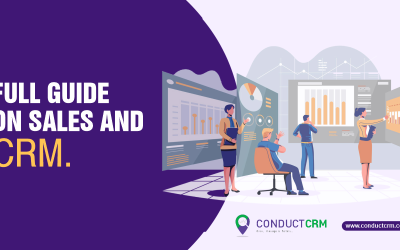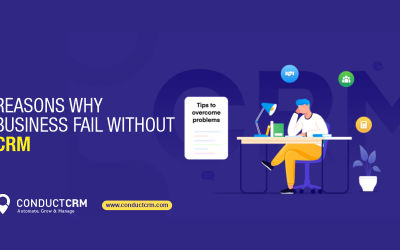How Sales Teams Use CRM Software to Hit Their Revenue Goals
Companies or enterprises face a variety of challenges in today’s competitive industries, and CRM software helps them in standing out.
CRM (Customer Relationship Management) software is used to maintain customer relationships and develop new customer leads to enhance sales. The consumer’s impact is key in maximizing revenue. Increasing revenues is also one of the ultimate goals of every business that has established itself in the market.
Any business must hire a skilled sales team to assist them in selling their products or services. Organizations that sell products or services require effective and distinctive sales techniques to raise their sales ratio by attracting consumers’ interest in purchasing the products.
Great sales tool: CRM Software
To come up with a new and creative idea, the sales team requires an effective tool that allows them to analyze the existing market and the strategies of their competitors.
CRM software is one of the most powerful sales tools available, allowing businesses to create an effective campaign aimed at raising sales ratios and optimizing profits.
“52% of high-performing salespeople identified themselves as power users who take full advantage of their companies’ CRM technology,” according to a Harvard Business Review study of over 800 salespeople and Sales executives, interviews with over 1,000 top salespeople from the world’s top companies.
Always come up with new ideas that grab the interest of customers and organizations. They do so to keep consumers engaged with the companies and keep their trust in the products or services. As a result, the companies can achieve their objectives while increasing their sales ratio.
However, to increase revenues, the business must reduce its costs while maximizing the sales ratio. That is why they must first conduct a detailed market analysis before designing a product-selling strategy.
Here are three ways through which the sales team uses the CRM software and makes the best strategies.
1. Formalize sales processes
Those who identified themselves as having an effective sales process reported a 15% boost in revenue growth compared to companies that did not, according to Harvard Business Review.
Start with a set of established stages and milestones that connect to the clients’ buying process and that company’s entire sales team knows and supports. Describe all of the important stages and exactly what needs to happen at this one, as well as all of the protocols and data that the sales agents will require at each one.
Through the help of the CRM software, the administrators provide the whole guideline to the team. This helps them to provide whole information to the clients as well as sales details are described in the software so administrators can easily analyze the progress of the sales.
2. An accurate sales forecast
Any success of an organization depends on accurate sales forecasting. An accurate sales forecast will not only tell that, whether the companies are on track to meet the revenue goals, but it will also provide useful information about other aspects of the organization, such as resource management, budgeting, and hiring.
All of the essential sales information, such as established targets, deal values, deal status, customer profiles, and so on, will be recorded and tracked in customer relationship management.
However, simply storing a large amount of data will not be enough! The businesses can build accurate pipeline and forecast charts and reports from this data with the help of a system and know exactly where they stand with their revenue targets. As a result, they’ll be able to make more informed decisions and implement data-driven strategies to improve performance.
3. Connect sale Funnel
Every stage of the sales funnel must be integrated, clear, and accessible for a sales team to perform efficiently and close more deals. CRM software provides a single platform to enable everything from prospecting and lead creation through sales and quotations, implementation, and customer support.
Customers are more likely to purchase a certain product when the company engages them and provides them a personalized experience, according to research.
Also Read: Relationship Funnel: A Guide to a Relationship-Led Marketing Strategy
What are the benefits of CRM Software for salespeople?
There are several benefits of CRM software that are experienced by salespeople.
1. Safe storage space
To keep their customers’ data safe, corporations save that on software. They require security to ensure that their data is never lost and is never accessed by hackers. CRM software, on the other hand, provides security for keeping data as well as features for recovering information.
The secure cloud storage space entices businesses to implement the technology into their businesses, and these details may be exchanged conveniently and securely between teams.
2. Manage the schedule like a pro
Companies that can manage their entire working process on time have more opportunities to connect with their customers and boost their productivity.
Customer relationship management software helps salespeople in optimizing their day-by-day schedules and organizing schedules to make sure that customers aren’t forgotten and that critical potentiality is reached on time. CRM helps salespeople to spend extra time with customers, resulting in extra offers getting closed and capable of making a more powerful purchaser base.
3. Reports
Organizations must review their previous sales to improve their sales. Companies can do that by analyzing sales information and designing the most effective strategy.
Making reports is time-consuming and tedious, and sometimes the reports contain errors due to human mistakes. Another reason businesses choose customer relationship management software is because of their auto-generated report features, which produce reliable and error-free data.
4. Stay up-to-date
The sales team records sales and purchase information into a database. This prospect assists businesses in staying informed about their growth and current positions.
Furthermore, well-managed data assists the administrator in determining how sales are expanding and how much the companies are receiving in compensation based on previous sales.
5. Increase the sales ratio
One kind of lead generation software is customer relationship management software. For obtaining leads from new customers, the corporation uses many methods.
An organization can import leads from a single platform with the help of a CRM system. These capabilities assist businesses in saving time while accessing various platforms. And this time is spent establishing the trust of customers in terms of selling them products or services.
6. Reducing the workload
Companies can manage their entire process with the help of customer relationship management software. Administrators can effortlessly monitor the sales, purchase, and all other processes while using a single platform.
That is why companies nowadays utilize customer relationship management. They can easily and fairly assign tasks to their workers. Brands are working more on developing techniques for boosting earnings while reducing the burden of work.
7. Cost-effective Software
CRM software is the most cost-effective option for any business. Companies may successfully reduce their costs and save time by implementing automation. Companies can reduce their errors and get error-free results.
Also Read: How Custom CRM Integration With Business Can Maximize Business Productivity
Conclusion
Businesses must ultimately take control of their sales pipeline to succeed with sales budgets and sales teams. To accomplish so, they must put in place sales processes that can be mapped, managed, and monitored, as well as engage the services of their entire team.
You can expect to reach your predictions, beat your targets, and see your team close more business by adopting CRM and implementing these best practices.
Schedule a demo with one of our CRM experts to discover how Conduct CRM can help you meet your revenue targets.

